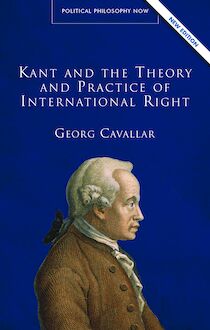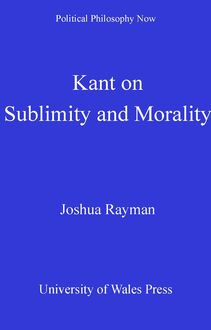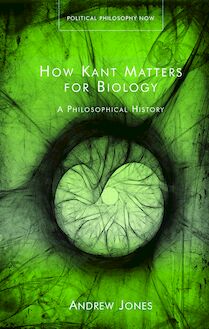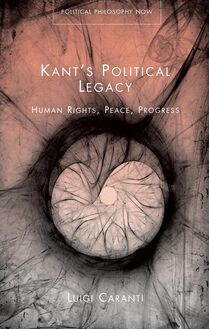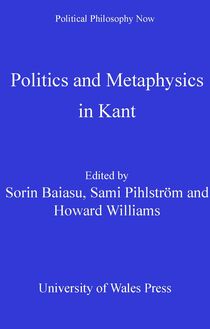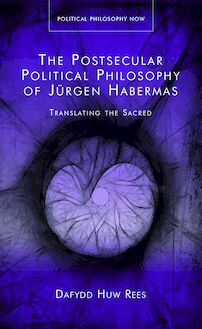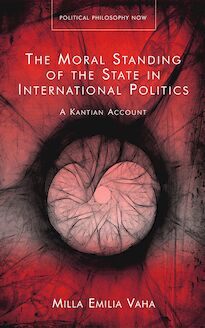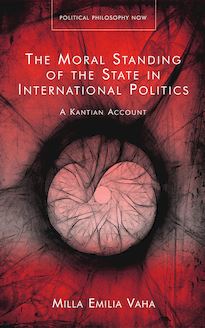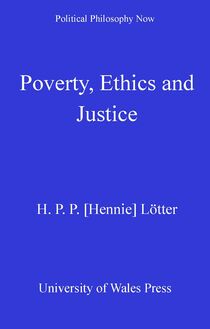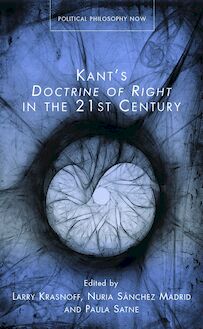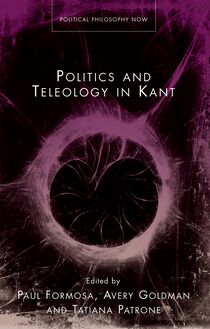-
 Univers
Univers
-
 Ebooks
Ebooks
-
 Livres audio
Livres audio
-
 Presse
Presse
-
 Podcasts
Podcasts
-
 BD
BD
-
 Documents
Documents
-
- Cours
- Révisions
- Ressources pédagogiques
- Sciences de l’éducation
- Manuels scolaires
- Langues
- Travaux de classe
- Annales de BEP
- Etudes supérieures
- Maternelle et primaire
- Fiches de lecture
- Orientation scolaire
- Méthodologie
- Corrigés de devoir
- Annales d’examens et concours
- Annales du bac
- Annales du brevet
- Rapports de stage
La lecture à portée de main
Vous pourrez modifier la taille du texte de cet ouvrage
Découvre YouScribe en t'inscrivant gratuitement
Je m'inscrisDécouvre YouScribe en t'inscrivant gratuitement
Je m'inscrisEn savoir plus
Vous pourrez modifier la taille du texte de cet ouvrage
En savoir plus

Description
Sujets
Informations
| Publié par | University of Wales Press |
| Date de parution | 15 mai 2011 |
| Nombre de lectures | 0 |
| EAN13 | 9781783164752 |
| Langue | English |
Informations légales : prix de location à la page 0,1900€. Cette information est donnée uniquement à titre indicatif conformément à la législation en vigueur.
Extrait
POLITICAL PHILOSOPHY NOW
Chief Editor of the Series: Howard Williams, Aberystwyth University, Wales
Associate Editors: Wolfgang Kersting, University of Kiel, Germany Steven B. Smith, Yale University, USA Peter Nicholson, University of York, England Renato Cristi, Wilfrid Laurier University, Waterloo, Canada
Political Philosophy Now is a series which deals with authors, topics and periods in political philosophy from the perspective of their relevance to current debates. The series presents a spread of subjects and points of view from various traditions which include European and New World debates in political philosophy.
For other titles in this series, please see the University of Wales Press website: www.uwp.co.uk
POLITICAL PHILOSOPHY NOW
Politics and Metaphysics in Kant
Edited by Sorin Baiasu, Sami Pihlstr m and Howard Williams
UNIVERSITY OF WALES PRESS CARDIFF 2011
The Contributors, 2011 Reprinted, 2011
All rights reserved. No part of this book may be reproduced in any material form (including photocopying or storing it in any medium by electronic means and whether or not transiently or incidentally to some other use of this publication) without the written permission of the copyright owner except in accordance with the provisions of the Copyright, Designs and Patents Act 1988. Applications for the copyright owner s written permission to reproduce any part of this publication should be addressed to the University of Wales Press, 10 Columbus Walk, Brigantine Place, Cardiff CF10 4UP.
www.uwp.co.uk
British Library Cataloguing-in-Publication Data A catalogue record for this book is available from the British Library.
ISBN 978-0-7083-2377-9 e-ISBN 978-1-7831-6475-2
The right of the Contributors to be identified as authors of this work has been asserted by them in accordance with sections 77, 78 and 79 of the Copyright, Designs and Patents Act 1988.
Contents
Abbreviations and References to Kant s Works
1 Metaphysics and Politics in the Wake of Kant: The Project of a Critical Practical Philosophy
Sorin Baiasu, Sami Pihlstr m and Howard Williams
2 Kant s Moral Constructivism and Rational Justification
Kenneth R. Westphal
3 Political, not Metaphysical, yet Kantian? A Defence of Rawls
Alyssa R. Bernstein
4 On the Conditions of Discourse and Being: Kantian, Wittgensteinian and Levinasian Perspectives on the Relation between Metaphysics and Ethics
Sami Pihlstr m
5 One Community or Many? From Logic to Juridical Law via Metaphysics
Lucas Thorpe
6 Kant s Rechtslehre and Ideas of Reason
Tatiana Patrone
7 Practical Agency, Teleology and System in Kant s Architectonic of Pure Reason
Lea Ypi
8 What a Kantian Can Know A Priori: An Argument for Moral Cognitivism
Katerina Deligiorgi
9 Metaphysics and Moral Judgement
Sorin Baiasu
10 Intelligible Facts : Toward a Constructivist Account of Action and Responsibility
Garrath Williams
11 Metaphysical and not just Political
Howard Williams
12 Cosmopolitan Right: State and System in Kant s Political Theory
Sharon Anderson-Gold
13 The Metaphysics of International Law: Kant s Unjust Enemy and the Limitation of Self-Authorization
Oliver Eberl
Abbreviations and References to Kant s Works
The following abbreviations for Kant s works are used throughout this book: AA Akademie-Ausgabe Anth Anthropologie in pragmatischer Hinsicht ( AA 07) GMS Grundlegung zur Metaphysik der Sitten ( AA 04) IaG Idee zu einer allgemeinen Geschichte in weltb rgerlicher Absicht ( AA 08) KpV Kritik der praktischen Vernunft ( AA 05) KrV Kritik der reinen Vernunft KU Kritik der Urteilskraft ( AA 05) Log Logik ( AA 09) MpVT ber das Mi lingen aller philosophischen Versuche in der Theodicee ( AA 08) MS Die Metaphysik der Sitten ( AA 06) Prol Prolegomena zu einer jeden k nftigen Metaphysik ( AA 04) Refl Reflexion ( AA 14-19) RGV Die Religion innerhalb der Grenzen der blo en Vernunft ( AA 06) TP ber den Gemeinspruch: Das mag in der Theorie richtig sein, taugt aber nicht f r die Praxis ( AA 08) V-Eth/Vigil Vorlesungen ber Ethik Vigilantius ( AA 27) V-MP/Dohna Kant Metaphysik Dohna ( AA 28) V-MP-L2/P litz Kant Metaphysik L2 (P litz, Original) ( AA 28) VRML ber ein vermeintes Recht, aus Menschenliebe zu l gen ( AA 08) ZeF Zum ewigen Frieden ( AA 08)
In references, abbreviations will be followed by the volume and page number from Kant s Gesammelte Schriften (Berlin: vols 1-22, Preussische Akademie der Wissenschaften; vol. 23, Deutsche Akademie der Wissenschaften zu Berlin; vols 24-, Akademie der Wissenschaften zu G ttingen, 1900-). Translations used are listed under References for each paper. References to the Critique of Pure Reason will follow the A (first edition), B (second edition) convention.
1 Metaphysics and Politics in the Wake of Kant: The Project of a Critical Practical Philosophy
Sorin Baiasu, Sami Pihlstr m and Howard Williams
Hence human reason, ever since it has been thinking or - rather - meditating, has never been able to dispense with a metaphysics, yet has nonetheless been unable to expound one that was sufficiently purified of everything extraneous. The idea of such a science is just as old as speculative human reason; and what reason is there that does not speculate, whether such a speculation be done in a scholastic or in a popular manner? ( KrV A842/B870)
1. Historical contexts
The past three decades have witnessed the emergence, at the fore-front of political thought, of several Kantian theories. Both the critical reaction to consequentialism inspired by Rawlsian constructivism and the universalism of more recent theories informed by Habermasian discourse ethics, for instance, trace their main sources of inspiration back to Kant s writings. Yet much of what is Kantian in contemporary theory is formulated with more or less strict caveats concerning Kant s metaphysics. These range from radical claims that theories of justice must be political, not metaphysical, to more cautious calls for replacing Kant s metaphysics with a less demanding ontology, such as one informed, for instance, by the relatively recent linguistic turn in philosophy.
What motivates such a reluctant attitude towards metaphysics among Kantian scholars? To begin with, the very meaning of metaphysics is deeply contested: depending on whether the word metaphysics is used critically, approvingly or merely descriptively, and depending on what those who practise metaphysics take themselves to be doing, the word metaphysics will refer to distinct and sometimes even contradictory areas of inquiry. Apart from the more technical difficulty of finding a definition of the term that would meet with at least general agreement, philosophers and especially political philosophers seem to have a reflex reaction of rejection and alarm at the very mention of the word metaphysics .
For the wary amongst us, the term evokes fundamentalist conviction, obscurantist argumentation and deep complication. It is, therefore, no surprise that metaphysics has often not had a good press in moral and political philosophy and has not received entirely favourable treatment even amongst philosophers, such as Kant and Hegel, who have ended up espousing it. Amongst its critics, the name of metaphysics has conjured visions of abstract, over-complex and remote thinking that has lost touch with everyday reality.
The idea of metaphysics invites comparison with common sense. Metaphysics evokes a notion of thinking and meditating that is out of touch with the ordinary world and irrelevant to the active concerns of human life. Metaphysics is often seen as too close to religion and, in some instances, even identical to it. Many major metaphysicians such as Aquinas, Leibniz and Spinoza have presented systems that are coextensive with theology.
Metaphysics for these philosophers is a depiction of divine truth and reality. They have encouraged a view of metaphysics that is immense in its ambitions. At the same time as projecting a view of metaphysics that is coextensive with religion, they can sometimes be read as acquiescing in the aspiration of religious thinkers, in particular those belonging to the medieval tradition, to subordinate all philosophical reflection to religious conviction. This is an undesirable state of affairs, and in so far as metaphysics is understood as comprehending religious doctrine that ultimately relies on dogmatic pronouncements, it should be resisted.
However, we do not have to accept this image of metaphysics. It is legitimate for metaphysical reflection to include thinking about religious doctrine, but it need not be defined or limited by it. The problem is that historically, religion and metaphysics have overlapped considerably, and some have thought it appropriate that they should suffer the same fate in the modern period: decline.
The connection of metaphysics with religion can be traced back at least as far as Aristotle. It is usually suggested that the term metaphysics was coined soon after Aristotle s death in 322 bc to describe a number of treatises that were placed immediately after the Physics . 1 These treatises contain inquiries of a fundamental kind, including a philosophical lexicon that seeks to define such terms as principle , cause , element and nature .
The treatises are speculative, adventurous and unfinished. They are immediately recognizable to us now as metaphysics, and they rest on a tripartite distinction which Aristotle makes between physics which studies mutable objects, and for the most part deals with essence as inseparable from matter , mathematics, as a similarly speculative science, and a speculative science, which is prior to both , deals with first causes and must be eternal . What is notable about this third speculative inquiry or the highest science is that Aristotle depicts it as what is visible of the divine or theology. 2 In Aristotle s description of metaphysics, then, there seems to be a marked overlap between the domain of philosoph
-
 Univers
Univers
-
 Ebooks
Ebooks
-
 Livres audio
Livres audio
-
 Presse
Presse
-
 Podcasts
Podcasts
-
 BD
BD
-
 Documents
Documents
-
Jeunesse
-
Littérature
-
Ressources professionnelles
-
Santé et bien-être
-
Savoirs
-
Education
-
Loisirs et hobbies
-
Art, musique et cinéma
-
Actualité et débat de société
-
Jeunesse
-
Littérature
-
Ressources professionnelles
-
Santé et bien-être
-
Savoirs
-
Education
-
Loisirs et hobbies
-
Art, musique et cinéma
-
Actualité et débat de société
-
Actualités
-
Lifestyle
-
Presse jeunesse
-
Presse professionnelle
-
Pratique
-
Presse sportive
-
Presse internationale
-
Culture & Médias
-
Action et Aventures
-
Science-fiction et Fantasy
-
Société
-
Jeunesse
-
Littérature
-
Ressources professionnelles
-
Santé et bien-être
-
Savoirs
-
Education
-
Loisirs et hobbies
-
Art, musique et cinéma
-
Actualité et débat de société
- Cours
- Révisions
- Ressources pédagogiques
- Sciences de l’éducation
- Manuels scolaires
- Langues
- Travaux de classe
- Annales de BEP
- Etudes supérieures
- Maternelle et primaire
- Fiches de lecture
- Orientation scolaire
- Méthodologie
- Corrigés de devoir
- Annales d’examens et concours
- Annales du bac
- Annales du brevet
- Rapports de stage
